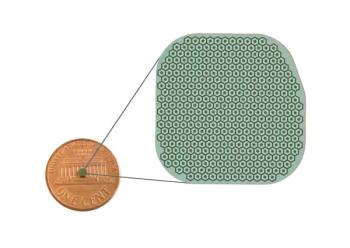
AAOpt 2024: The power of clinical insights
Jessica Steen, OD, FAAO, Dipl-ABO, discussed ophthalmic considerations for patients undergoing treatment with antibody drug conjugates for gynecologic cancers at this year's conference.
Jessica Steen, OD, FAAO, Dipl-ABO, emphasized the importance of ophthalmic therapeutic management, communication with oncology teams, and effective referral networks to improve patient outcomes in her presentation "Optometry Alchemy: Turning Clinical Insights into Gold" at this year's American Academy of Optometry meeting. Steen highlighted the need for optometrists to understand disease processes, treatment options, and when to refer patients beyond their scope. She also noted the significance of communication with ophthalmology specialists and sub-specialists for better patient management, particularly in cases like glaucoma.
Video transcript:
Editor's note: The below transcript has been lightly edited for clarity.
Jessica Steen, OD, FAAO, Dipl-ABO:
I'm Dr Jessica Steen. I'm an associate professor at Nova Southeastern University College of Optometry, and we're in Indianapolis, at the American Academy of Optometry meeting. I had the opportunity to share a good, solid clinical discussion with my colleague, Dr Chris Putnam. We really focused on ophthalmic conditions and systemic conditions with ophthalmic complications, where there's been a significant change in the trend in treatment options, where new treatment options have become available, or our diagnostics have changed within the disease space.
Now specifically, I also spoke about the ophthalmic considerations for patients who may be undergoing treatment with 1 of 2 antibody drug conjugates for classically challenging or difficult to treat female gynecologic cancers: ovarian cancer and cervical cancer. I focused on number one: the ophthalmic therapeutic management and prescriptions that are necessary during treatment, but also the core of communication with the managing oncology team for long term success for these women.
It's wonderful to be at Academy, to connect with colleagues, with students, with residents, and really to celebrate our profession.
For any challenging case, our role as optometrists is truly to understand the disease process, understand the treatment options, and understand when that patient may require treatment that is beyond the scope of optometry. And that communication between us and our referral networks truly is so successful to ensure that we're able to communicate to our referring physicians what may be needed at what time and hopefully for what reason to ultimately improve that patient's outcome.
The referral connection within optometry and ophthalmology is really the core of our success in managing patients, and communication is truly the core. This is something that's come up a number of times this week, but whenever we're at a conference like this, the question that I ask myself is, "How can I do things better when I come back to practice?" and communication with the ophthalmologist specialists and subspecialists and our community as one piece that in a specific case within our patients who have glaucoma, I think there's improvement for us in a local area to exist. Optometry is an incredible profession to be in, from an educational standpoint, from pushing clinical treatments advancements forward. It's such a growing field and truly a bright avenue and a bright realm to be part of.
Newsletter
Want more insights like this? Subscribe to Optometry Times and get clinical pearls and practice tips delivered straight to your inbox.



























